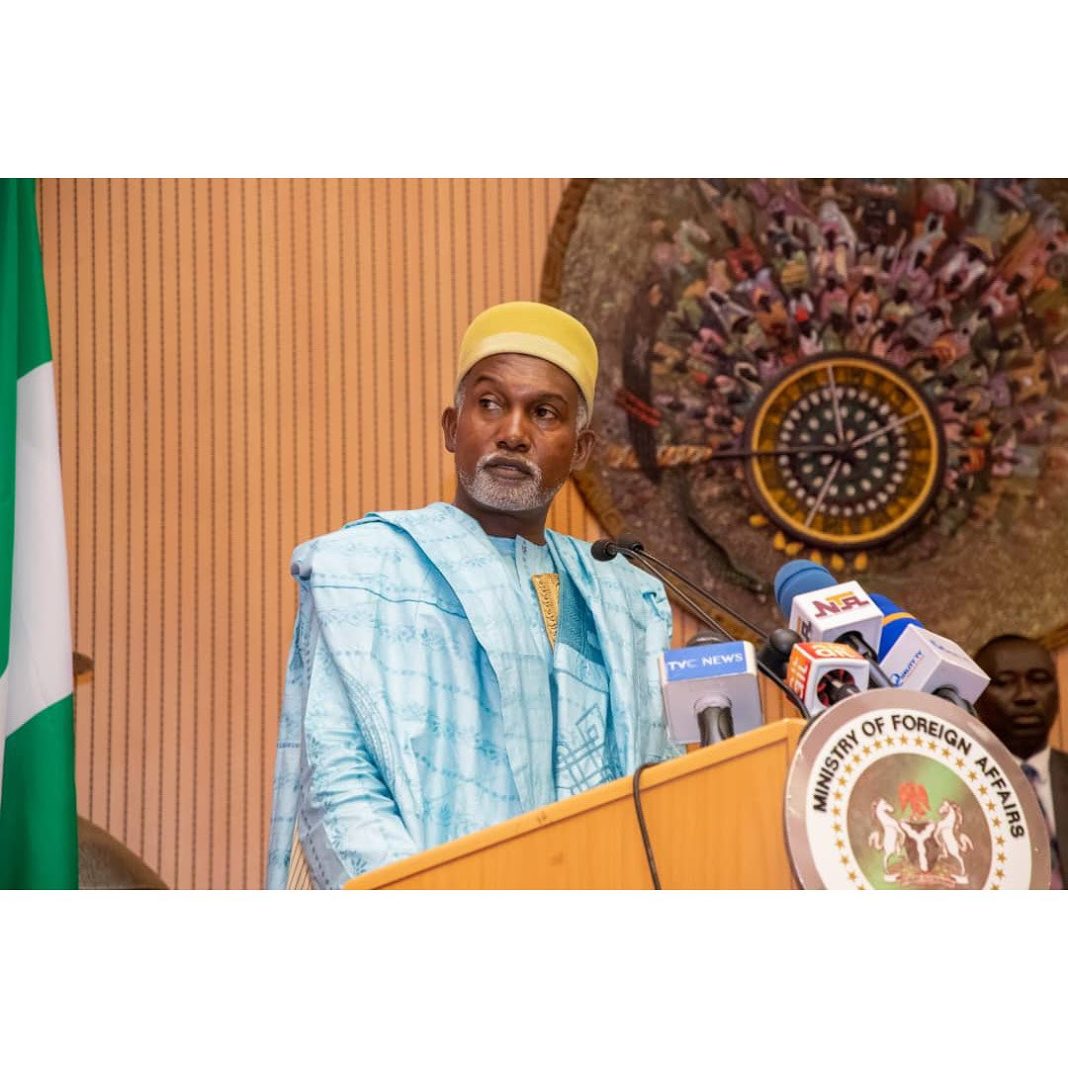By Bashir Aliyu
The Honourable Minister of Foreign Affairs, Yusuf Maitama Tuggar hailed a strategic partnership between Nigeria and India at the sideline of the G-20 summit in New Delhi India on 6th September 2023. The Nigerian top envoy also noted that India is one of the focal countries of President Bola Ahmed Tinubu’s 4-D Diplomacy, which Nigeria’s Foreign Affairs Minister has referred to as the Tinubu Doctrine. The 4-Ds are Democracy, Demography, Development, and Diaspora
The minister recognized that both India and Nigeria “are the largest constitutional democracies on their respective continents” and it is in Nigerian interest “to strengthen our democratic institutions in order to improve the quality of life for our citizenry by improving services rendered by our governments as well as providing the environment for the private sector to thrive. According to Yusuf Maitama Tuggar, the private sector thrives when governments ensure policy predictability, secure property rights, and effectiveness of contracts. The minister pledged to deepen ties with India due to its strategic importance to President Bola Ahmed Tinubu’s 4-Ds foreign policy.
Detailing Nigeria’s commitment to promote democracy, the Nigerian Foreign Minister emphasized that “constitutional order, credible governance, and regular elections held at different tiers of governments are an integral part of the system,” stating that Nigeria and India could collaborate closely to bring about improvements in electoral processes by sharing experiences, technology, and ideas. While India has an impressive electoral system that enables its citizens to vote using postal network, Nigeria has continued to improve its electoral system by deploying new technologies during elections. From card reader to BVAS, Nigeria will continue to strengthen its electoral system.
As he discussed demography which is also a key part of President Bola Tinubu’s new foreign policy doctrine, Yusuf Maitama Tuggar emphasized that Nigeria continued to “collaborate with countries with huge populations like us such as India,” stating that Nigeria is the most populous country in Africa, and it is expected to be the world’s 3rd largest country behind only India and China over the next decades. To deliver on SDGs and similar human-centric goals and to avert global financial and economic crises, India and Nigeria need to be on the decision-making tables such as G-20, BRICS, and the UN Security Council. By deepening cooperation and strategic partnership, Nigeria and India stand to benefit from each other in the areas of technology, agriculture, health, and energy.
Development is also a key part of Nigerian new foreign policy direction under President Bola Ahmed Tinubu. Development, as stated by Yusuf Maitama Tuggar, “speaks to infrastructure, manufacturing, and agriculture, the combination of which can achieve double-digit economic growth for both countries.” Referring to India’s significant investment in Digital India project and knowledge-based economy, Nigeria has also been investing in the country’s tech ecosystem, equipping the youth with new technologies and training to excel.
Nigeria has “a world-class instant payment transfer infrastructure, NIBSS (Nigeria Inter-Bank Settlement System), that has existed since 1994 and are way ahead of many developed countries in this aspect. Like India, Nigeria’s mobile phone penetration is phenomenal, and financial inclusion is an area we are aiming to improve.” The minister added that the minister India’s Jan Dhan Yojana programme is not dissimilar to Nigeria’s Agent Banking for financial inclusion.
The testimonial for the huge potential for private sector investors in this space in Nigeria is in the success of fintech companies such as NOMBA, formerly known as Kudi. Indian entrepreneurs can relate to this and easily seize the opportunities therein. The growth to be unleashed through our expanding gas infrastructure, Special Economic Zones, and agro-allied value chains, means there is a business case and bankable project for entrepreneurs who understand countries like India and Nigeria.
Commenting on Diaspora, the Nigerian Foreign Minister Yusuf Maitama Tuggar said there is huge number of Nigerians living in both India and Indians living in Nigeria. This “form the first point of interface between the two nations and the value they add to the relationship between our two nations is something to be nurtured and harnessed,” said the top diplomat, adding that many Nigerians grew up watching Bollywood movies, and had Indian teachers which therefore acculturated then to many things Indian at an early age.
Finally, the minister pledged to continue with the cultural ties that bring the two countries closer educationally, physically and virtually.
“Nollywood and Nigeria’s film industry could do more with closer collaboration with Bollywood, especially behind the camera; lighting, makeup, cinematography and sound. Prior to COVID-19 pandemic, Nigeria had one of the fastest media and entertainment sectors in the world and we are gradually ramping back up. The world is dancing to Afrobeats. We want to embrace India and dance together.”



